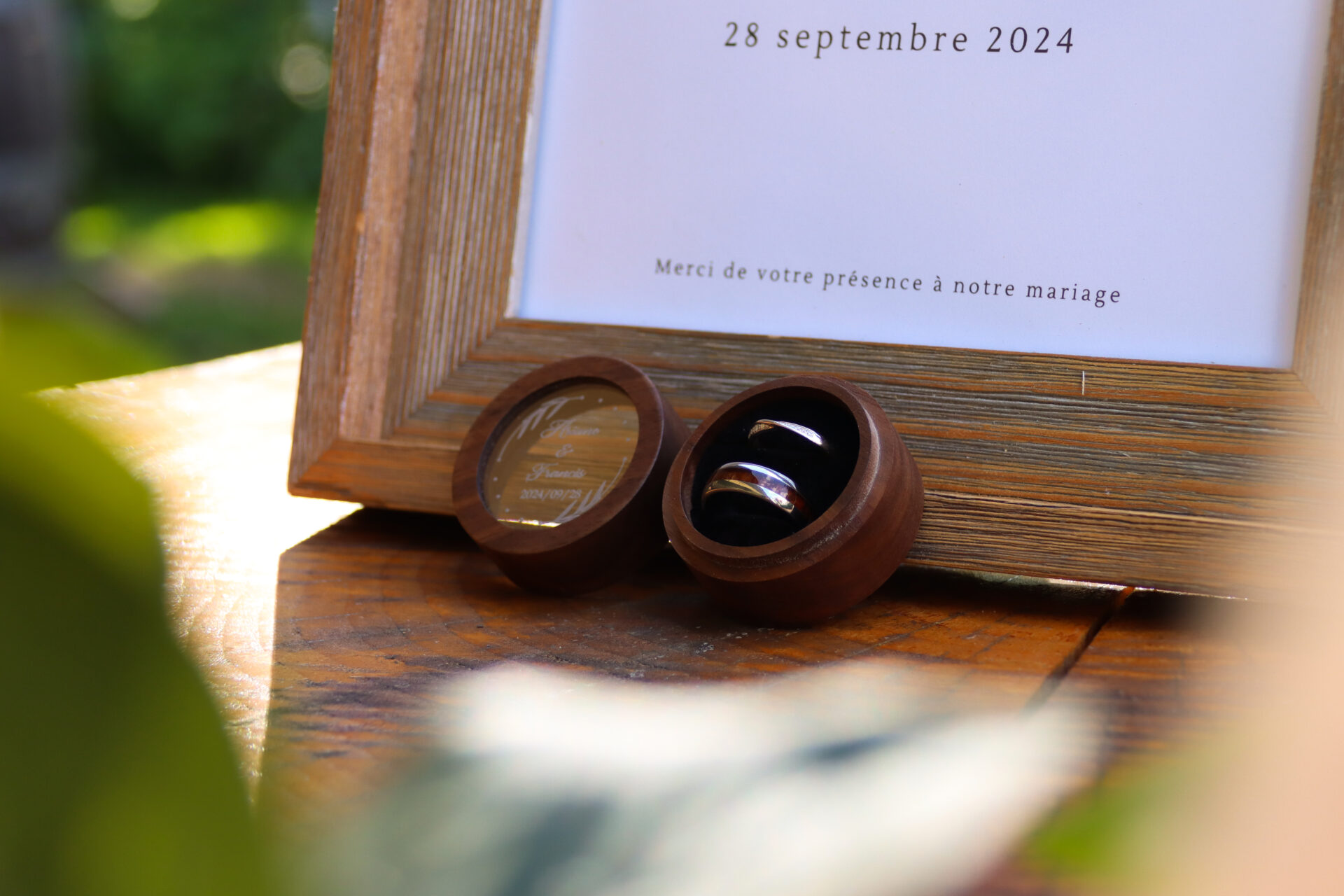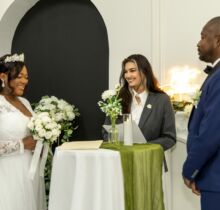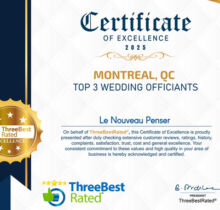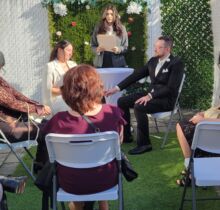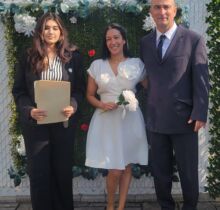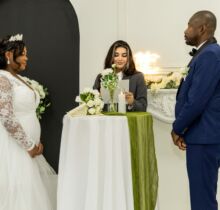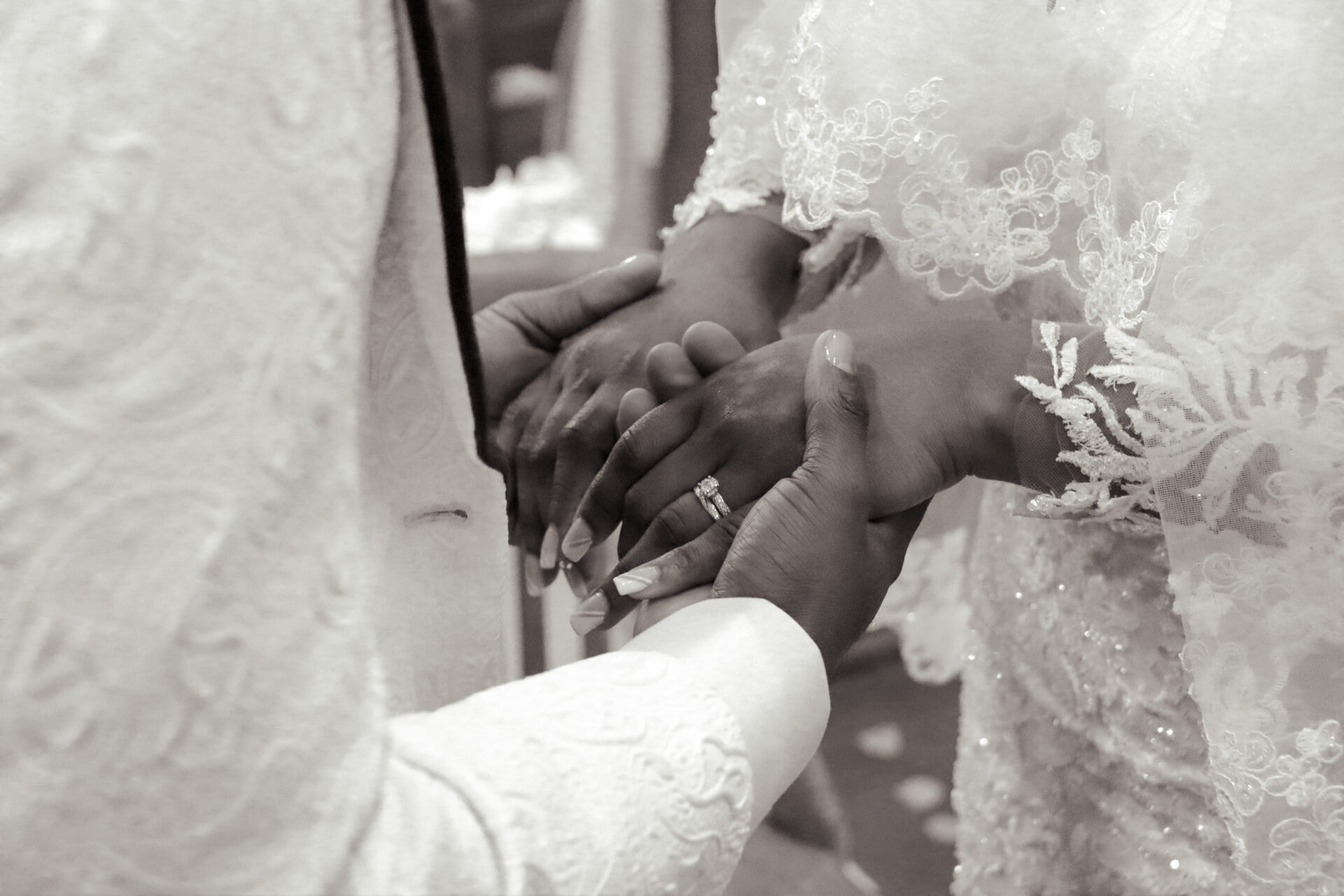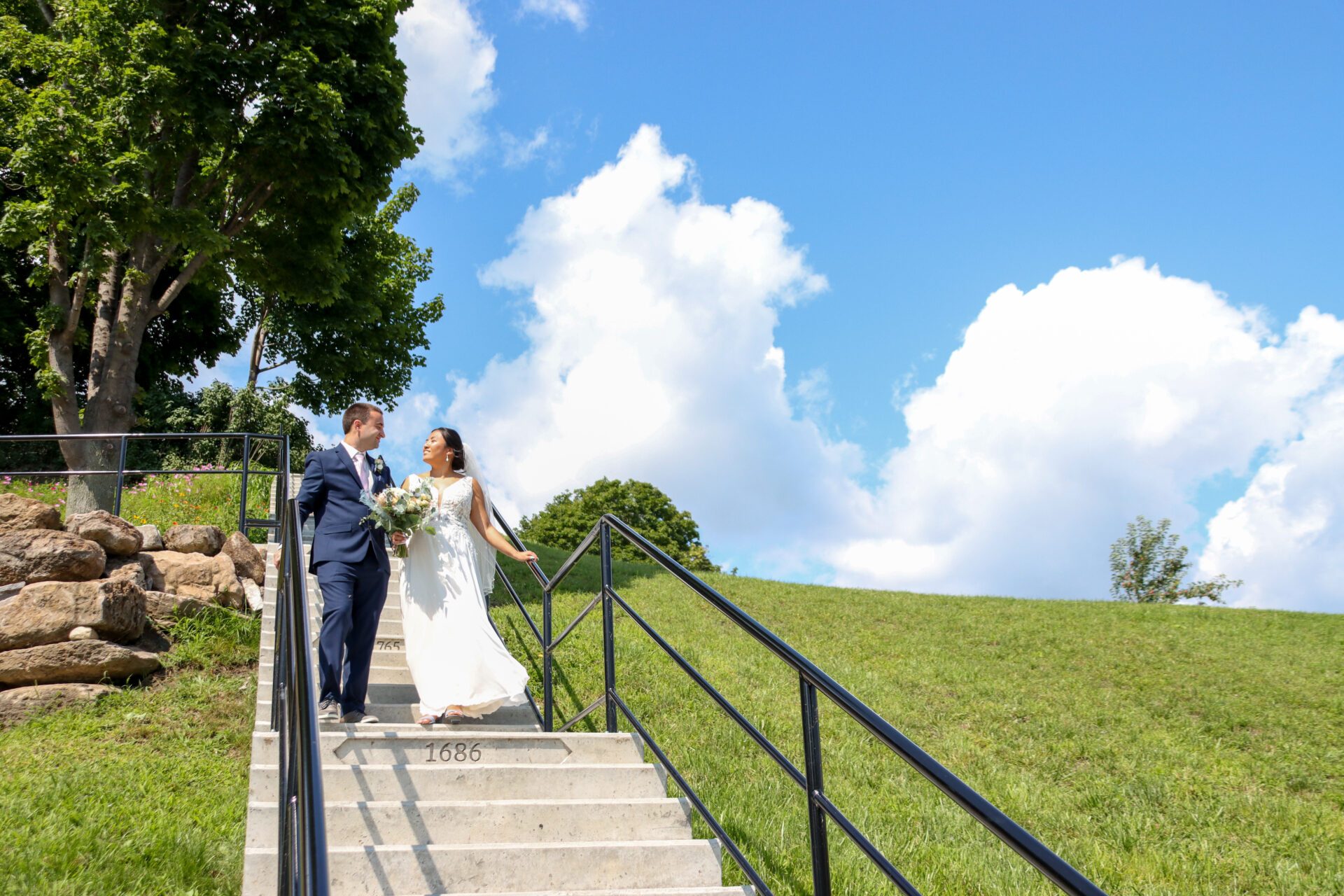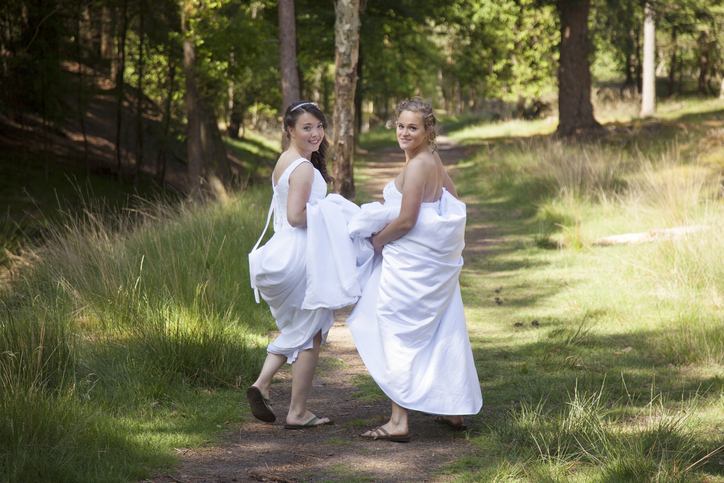How to organize a civil marriage/civil wedding at the courthouse, and what is the process?
Getting married at the courthouse in Montreal, Laval, or Longueuil is a straightforward process, but it requires careful preparation through several steps. First, the couple must contact the courthouse registry to confirm the availability of a clerk or deputy clerk authorized to officiate civil marriages. Once the date is selected, the couple must provide the necessary documents, such as valid identification and, if applicable, proof of dissolution of a previous marriage or the death certificate of a former spouse.
Before the ceremony, it is mandatory to publish a marriage notice at least 20 days in advance, unless an exemption is granted by the Directeur de l’état civil. On the wedding day, the couple, accompanied by two adult witnesses, must present themselves at the courthouse, where the clerk officiates the ceremony in a formal and official setting. After the exchange of vows, the official documents are signed and sent to the civil registry. This process makes the Montreal courthouse a key institution for civil marriages/civil weddings in the region.
Contact me at 514-974-0511 or by email at – [email protected]
What are the steps to find a civil marriage/civil wedding or civil union officiant in Montreal/Quebec?
To find a civil wedding/civil marriage or civil union officiant in Montreal or elsewhere in Quebec, several options are available:
- Government Resources: The Government of Quebec website (Directeur de l’état civil – DEC) provides a list of authorized officiants for weddings and civil unions.
- Associations: Organizations and officiant associations, such as Le Nouveau Penser (my association!), offer online directories to help you find a certified officiant.
- Independent Officiants: Specialized platforms often feature independent officiants showcasing their services.
Before making your choice, ensure that the officiant aligns with your style and expectations, is authorized to perform weddings, and is available on your chosen date. Contact me for more informations about my services!
How to select a venue and reception hall for the ceremony, and what is the average duration of a ceremony?
A civil marriage ceremony can take place in a location that suits your vision, such as a church, garden, beach, or a dedicated venue. For dedicated venues, you can also consider consulting Me Lincà notary ceremony spaces or contact me for more details. The choice of location will depend on your preferences and the style you want for your union.
The official celebration usually lasts about 30 minutes, which is ideal for maintaining a solemn yet dynamic atmosphere.
What criteria should be considered when choosing a wedding venue in Montreal and surrounding areas?
- Style: Start by defining the style you want—romantic, modern, rustic, etc.
- Capacity: Ensure the venue can comfortably accommodate all your guests.
- Accessibility: Choose a location that is easy to access, with parking options available.
- Personal Connection: Imagine celebrating your union in the space. It should resonate with your emotions and reflect your personality as a couple.
What is the structure of a civil marriage/civil wedding ceremony?
The format of a civil marriage ceremony typically follows a classic and solemn structure:
- Introduction: The officiant welcomes the guests and highlights the significance of the union.
- Legal Reading: The officiant reads articles from the Quebec Civil Code related to marriage.
- Exchange of Vows: The couple exchanges their vows.
- Exchange of Rings: The rings are exchanged as a symbol of mutual commitment.
- Signing of Documents: The couple, witnesses, and officiant sign the official documents, finalizing the legal union.
This format can be fully customized to reflect your wishes, including personalized texts, symbolic rituals, or guest contributions. My role is to ensure that your ceremony reflects your vision while respecting legal requirements. Contact me for more informations about my services.
What about civil unions and marriages for same-sex couples?
As a civil wedding officiant in Quebec, officiating the union of LGBTQ+ couples is a deeply meaningful and moving experience. Since the legal recognition of marriage equality, these unions symbolize fundamental rights and equality for all. Each ceremony is unique, but the love and sincere commitment of same-sex couples resonate just as profoundly as in any other marriage. My role is to create an inclusive and welcoming atmosphere where everyone feels valued and celebrated. Quebec, with its progressive laws, offers a framework that embraces love in all its forms, and I am proud to witness these unions through my role.
What does Quebec law say about marriage ceremonies?
In Quebec, marriage/wedding ceremonies are governed by the Civil Code of Quebec, which outlines the rules and formalities required for a legally recognized marriage. Key aspects include:
- Eligibility: Spouses must be of legal age or obtain an exemption in certain cases. They must also freely and fully consent to their union.
- Publication of Bans: A public notice must be published at least 20 days before the ceremony to allow for any legal objections.
- Authorized Officiants: Only recognized officials, such as notaries, clerks, mayors, ministers of religion, or those with special authorization, may officiate marriages.
- Ceremony Structure: The ceremony must include the reading of specific Civil Code articles about spousal rights and obligations, as well as the exchange of consent in the presence of witnesses.
- Document Signing: The spouses, witnesses, and officiant must sign the marriage certificate, which is then sent to the Directeur de l’état civil for registration.
This legal framework ensures that marriages comply with the law while allowing couples some freedom to personalize their ceremony.

